Electromagnetism
Electromagnetism is a branch of physics that deals with the study of the electromagnetic force, a type of physical interaction that occurs between electrically charged particles. This force is carried by electromagnetic fields, and it is responsible for the behavior of electrically charged objects. The electromagnetic force is one of the four fundamental forces in nature, along with gravity, the strong nuclear force, and the weak nuclear force.
Key Concepts
- Electric Charge: Electric charge is a fundamental property of matter. It can be positive or negative, and like charges repel each other while opposite charges attract.
- Electric Field: An electric field is a region around an electrically charged object where other charged objects experience a force.
- Magnetic Field: A magnetic field is a region around a magnet or a moving electric charge where magnetic forces are experienced.
- Electromagnetic Induction: This is the process of generating an electromotive force (emf) in a closed circuit by changing the magnetic flux through the surface enclosed by the circuit.
- Maxwell's Equations: These are a set of four fundamental equations that describe how electric and magnetic fields are generated and how they interact. They are central to the study of electromagnetism.
Applications of Electromagnetism
Electromagnetism has numerous practical applications in everyday life and various fields of science and technology. Some common applications include:
- Electric motors and generators
- Transformers
- Magnetic resonance imaging (MRI) in medicine
- Electromagnetic waves for communication (radio, TV, microwaves, etc.)
- Electromagnetic levitation in high-speed trains
Study Guide
If you're studying electromagnetism, here are some key topics to focus on:
- Properties of electric charge
- Electric fields and the concept of electric potential
- Magnetic fields and the behavior of magnets
- Electromagnetic induction and Faraday's law
- Maxwell's equations and their significance in describing electromagnetism
- Applications of electromagnetism in various technologies
Understanding these concepts and their applications will provide a solid foundation in electromagnetism, which is crucial for further studies in physics and related fields.
.◂Science Worksheets and Study Guides Seventh Grade. Cell Reproduction
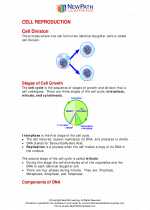
 Activity Lesson
Activity Lesson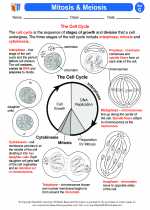
 Worksheet/Answer key
Worksheet/Answer key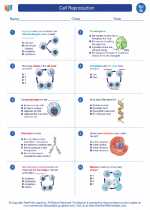
 Worksheet/Answer key
Worksheet/Answer key
 Worksheet/Answer key
Worksheet/Answer key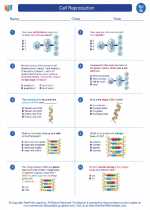
 Vocabulary/Answer key
Vocabulary/Answer key
 Vocabulary/Answer key
Vocabulary/Answer key
 Vocabulary/Answer key
Vocabulary/Answer key
 Vocabulary/Answer key
Vocabulary/Answer key
 Vocabulary/Answer key
Vocabulary/Answer key
 Vocabulary/Answer key
Vocabulary/Answer key
 Vocabulary/Answer key
Vocabulary/Answer key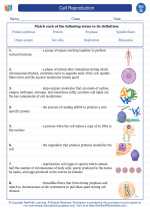
 Vocabulary/Answer key
Vocabulary/Answer key
